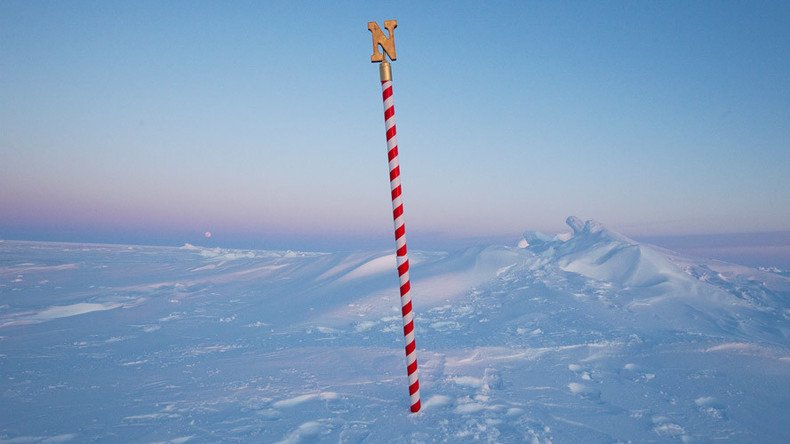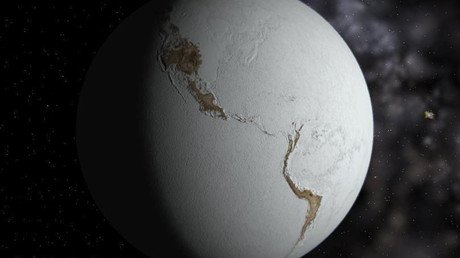Gas emissions delayed the next ice age by 100,000 years – study

Man-made greenhouse gas emissions have postponed the next ice age for an unusually long time, scientists say. Thanks to our industrial activity, the Earth won’t freeze over for another 100,000 years, a new study suggests.
“Moderate anthropogenic cumulative CO2 emissions of 1,000 to 1,500 gigatonnes of carbon will postpone the next glacial inception by at least 100,000 years,” the research published in the journal Nature says.
“Humans have the power to change the climate on geological timescales,” said Andrey Ganopolski, the lead author of the study, according to Reuters.
However, the concentration of carbon dioxide in the atmosphere is not the only reason humans may have dodged an ice age. In fact, as the Potsdam Institute for Climate Impact Research says, even though CO2 emissions have contributed to the delay, it is not the essential parameter.
“Our analysis suggests that even in the absence of human perturbations, no substantial build-up of ice sheets would occur within the next several thousand years and that the current interglacial would probably last for another 50,000 years,” the study says.
To come to such a conclusion, scientists simulated and looked into past ice ages. They found that there is a connection between the amount of energy our planet absorbs from the sun, the concentration of CO2, and glacial cycles.
Based on their study, they suggest “that glacial inception was narrowly missed before the beginning of the Industrial Revolution” in the 18th century.
“The missed inception can be accounted for by the combined effect of relatively high late-Holocene CO2 concentrations and the low orbital eccentricity of the Earth,” the study says.
According to German researchers, ice ages, or scientifically speaking “large-scale glaciation,” are affected by both man-made and natural causes: the greenhouse effect and shifts in the Earth’s orbit around the sun. The latter happens because our planet does not make a perfect circle when rotating, but rather moves in an oval shape, meaning that at one point it is closer to the Sun and at another it is further.
“We are now in a period when our (northern) summer is furthest from the Sun,” lead author Ganopolski told BBC.
Over the past million years, the Earth has gone through about 10 glacial cycles, each lasting about 100,000 years followed by warm phases. The last ice age ended 12,000 years ago after covering Canada, northern Europe and Siberia in ice.
“If the next glacial inception will occur in 100,000 years from now, the entire glacial cycle will be skipped, which never happened during the past million years,” Ganopolski said, according to Telegraph.
25 years of Arctic ice melting in one minute (TIMELAPSE VIDEO) https://t.co/C4NOgeoFIRpic.twitter.com/HaYXsi0lwP
— RT (@RT_com) January 10, 2016












